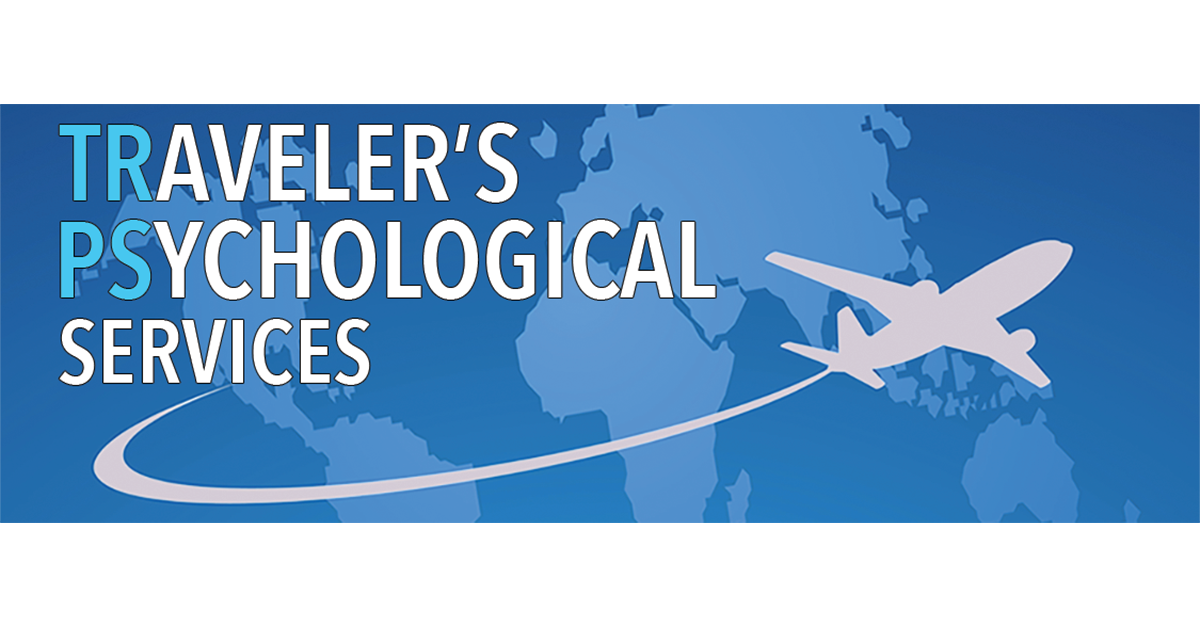By Paul Borish, MA; Licensed Professional Counselor Traveler’s Psychological Services
Part 1: “Why Am I So Anxious About Coronavirus and COVID-19?”
COVID-19 anxiety and Coronavirus anxiety are running rampant right now, due in part to the speed events are transpiring, and the lack of accurate information. Uncertainty lies at the core of most worry. People who consider themselves to be “chronic worriers” have difficulty shutting their minds off from constantly trying to resolve the uncertain. “What if I miss my flight tomorrow?” or “what if my boyfriend is cheating on me?” Currently, during the Coronavirus pandemic, one thing that is certain is that no one is able to resolve their own, or anyone else’s uncertainty about the future, even the future a week from now.
Productive vs Non-Productive Worry
Anxiety, in and of itself, is not a bad thing. If we had zero anxiety, we would likely step out in front of a moving car; get food poisoning, or sleep in and not show up for work. The difference is, some anxiety is productive, in that it can lead us to find solutions to real problems.
Productive Worry
When my daughter was a toddler, the productive worry we had about her getting electrocuted accidentally led us to put covers over open outlets. When I was cooking, a low level of productive worry reminded me to never leave the handles of frying pans hanging over the edge of the stove.
Unproductive Worry
Unproductive worry would be if, while I was at work all day I had thoughts and mental images of her sticking sharp knives through those covers. It’s unproductive because I’ve taken all realistic steps to protect her from outlets, she’s never left alone for long, and the thought of her prying a cover off with a steak knife at the age of 15 months is completely unrealistic.
Worrying During the Coronavirus and COVID-19 Pandemic:
How does uncertainty about the pandemic affect us? Simply look at the “Great Toilet Paper Panic.” Do people panic-buy and hoard toilet paper out of a productive, or non-productive worry? Let’s look at an example of both:

Example of Productive vs Non-Productive Worry
In the first case, productive anxiety leads us to add TP to our shopping list, where we’ll see it when we go to the store. Issue resolved.
In the second case, we’re engaging in what are known as “avoidance” or “safety behaviors.” Right at the start, our catastrophizing thoughts based on sensationalism begin a downward cascade. None of our thoughts, or the resulting behaviors, resolve the very realistic problems that we can resolve. Instead of controlling what we can, such as:
- Awareness of our personal environment
- “social distancing”
- hand washing
- assuring we have refills of necessary medication
- adequate non-perishables for a couple of weeks
we react “emotionally,” out of fear. If everyone else is buying toilet paper, maybe they know something we don’t? Next thing you know, you’re wild-eyed in Costco with 5 cases of cheap, industrial grade toilet paper, and 7 barrels of peanut butter pretzel nuggets.
Buying all that TP won’t resolve your uncertainty. Is 3 cases enough? 10? 25? 100?
Now, let’s look at the current, very real situation: There is a novel Coronavirus pandemic, for which there is currently no immunization or cure. Proportional COVID-19 anxiety is appropriate. As of when I write this, Sunday, March 22nd, approximately 80 million Americans are required to be in self-quarantine. Think back about 3 weeks ago, March 1st. Buttigieg and Steyer dropped out of the race, and the first COVID-19 related death in the US occurred in Washington State. Could you imagine then what would be happening now? No, none of us could.
“A Normal Reaction To An Abnormal Event”
What is happening now is an unpredictable (to us non-virologists) situation for which most of us have no frame of reference from which to operate. A certain level of COVID-19 anxiety is appropriate and functional. Without an ability to accurately appraise the realistic danger of situations appropriately, you might decide that this weekend was a good time to go to Florida for spring break.
Whatever negative emotions you are experiencing at this time are a normal reaction to an abnormal event.
There Is Something You Can Do:
However, and this is very important, you can control the thoughts that generate those emotions. The internet is famously full of factually incorrect information. One way to help regulate emotion is to base your information on facts. According to the The American Psychiatric Association (APA); the following steps can help get through the pandemic easier.
- Stay informed. Obtain current information about the outbreak from trusted sources, such as the Centers for Disease Control and Prevention and the World Health Organization (WHO). Follow and share basic information about hygiene to reduce spread of illness, such as handwashing and cough etiquette.
- Correct misinformation. Healthcare workers can help correct inaccurate information and misperceptions by sharing credible, established public health resources.
- Limit media exposure. Use media enough to make informed decisions, then turn it off.
- Anticipate and address stress reactions. Keep in mind that it’s normal to feel stress in reaction to an infectious disease outbreak and be aware of signs of stress in yourself or family members. Take steps to minimize and address stress, such as keeping normal routines, taking part in enjoyable activities. Focus on positive aspects of your life and things that you can control. Seek support from friends and family, and engaging in stress reduction techniques and physical activity.
If you are suffering from COVID-19 Anxiety and looking for Telemental Health therapy, in network (PA), or out of network, contact me today, at paul.borish@protonmail.com, or Toll Free: 844.321.877 or, visit Traveler’s Psychological Services
Mental Health Resources for Coronavirus and COVID-19
- https://www.nimh.nih.gov/about/director/messages/2020/coping-with-coronavirus-managing-stress-fear-and-anxiety.shtml
- https://www.cdc.gov/coronavirus/2019-ncov/symptoms-testing/share-facts.html
- https://www.cdc.gov/coronavirus/2019-ncov/prepare/prevention.html




